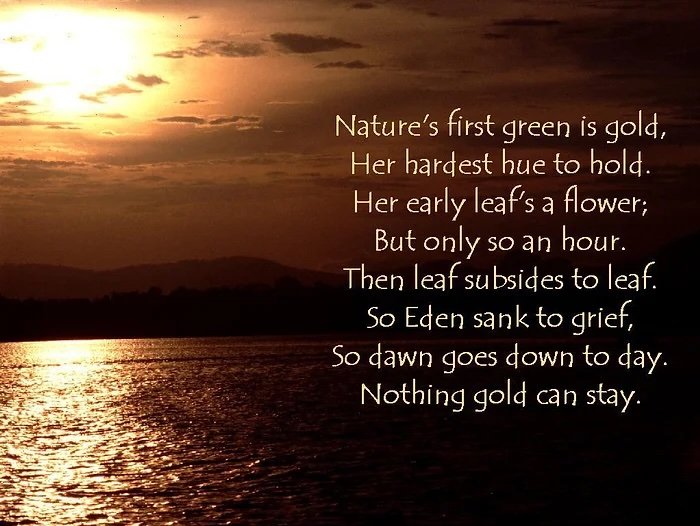How to Be Happy (Or at Least Feel Better) Listen to These Lyrics! - Hanson's "MMMBop"
Click here on Hanson's "MMMBop" (Credit to Theladyluck1990)
Isaac, Taylor and Zac Hanson were just teenagers when they wrote these surprisingly sophisticated lyrics:
You have so many relationships in this life
Only one or two will last
You go through all the pain and strife
Then you turn your back and they're gone so fast
So hold on to the ones who really care
In the end, they'll be the only ones there
When you get old and start losing your hair
Can you tell me who will still care?
Plant a seed, plant a flower, plant a rose
You can plant any one of those
Keep planting to find out which one grows
It's a secret no one knows
Surprising not just because they were so young to be writing such deep, forward-thinking lyrics, but because when "MMMBop" was released in 1997, few people paid attention to the words. As far as anyone could tell, it didn't even have words. All we heard was "MMMBop" on repeat.
Yet, the last lesson in the last class I ever taught before retiring from my 32-year public school teaching career was based on the song's startlingly relevant message that I knew would resonate with my high school seniors.
"Ten, twenty, fifty years from now, who will be still be in your life? Who can you count on to be there when you're 'old and losing your hair'? You can't really know. So plant lots of (relationship) seeds. Most won't grow. But some will. Which ones? 'It's a secret no one knows.' "
Heart-wrenching, right? Yet, despite the closing number in Grease, I knew that the vast majority of my graduates wouldn't "al-ways... be to-geth-er."
The "MMMBop lesson" isn't only about students' relationships with each other. It's also about teachers' relationships with their students. Each school year, we're introduced to a fresh group of kids. Our primary responsibility is to teach a specific slice of curriculum. Nonetheless, many of us understand that developing relationships with students is the performance enhancing drug of teaching.
How to be happy and feel better? Cultivate lasting relationships!
So we plant our relationship seeds. Most, if they sprout at all, are only there for one short season. Of the thousands of students who have entered my classrooms, only a few have remained in my life. If you had asked me each June which ones will still be there when I'm old and losing my hair, I could've guessed.
But, usually, I would've been wrong. Sadly, many of the ones I was certain would always be there vanished. And many of those I wouldn't have guessed really cared, really did. They're still here.
For now.
Because even the seeds that bloom and flourish, inevitably perish. "Nothing gold can stay," wrote Robert Frost.
On her Brainpickings sight, Maria Popova beautifully elaborates.
It is a difficult concept to accept - we have been socialized to believe in and grasp after the happily-ever-after future of every meaningful relationship. But what happens when love, whatever its category and classification, dissolves under the interminable forces of time and change, be it death or by some other, more deliberate demise? In the midst of what feels like an unsurvivable loss, how do we moor ourselves to the fact that even the most singularly gratifying things in life are merely on loan from the universe, granted us for the time being?
Two Millennia ago, the great Stoic philosopher Epictetus (c. 55-135 AD) argued that the antidote to this gutting grief is found not in hedging ourselves against prospective loss through artificial self-protections but, when loss does come, in orienting ourselves to it and what preceded it differently - in training ourselves not only to accept but to embrace the temporality of all things, even those we most cherish and most wish would stretch into eternity, so that when love does vanish, we are left with the irrevocable gladness that it had entered our lives at all and animated them for the time that it did.
Is your deepest fear losing the ones you love? Not just your obvious loves - the family you were born into and (if you're married with children) the family you created - but the other special ones you've encountered - your students, your co-workers, your neighbors, or even the animals who've stoked your heart. (Not a day passes when I don't think about what a mess I'll be when I have to say goodbye to Kihei.)
My friend, Kihei, I'm glad you're here!
How do we cope? How do we withstand lost loves? Popova (and Epictetus) say our best option is to embrace evanescence. Treasure the energy, enthusiasm and vitality our loves bring to us while they're here. We have no better choice. Because no matter who they are, no matter how powerful our love for them, it's inevitable.
MMMBop and they're gone.



